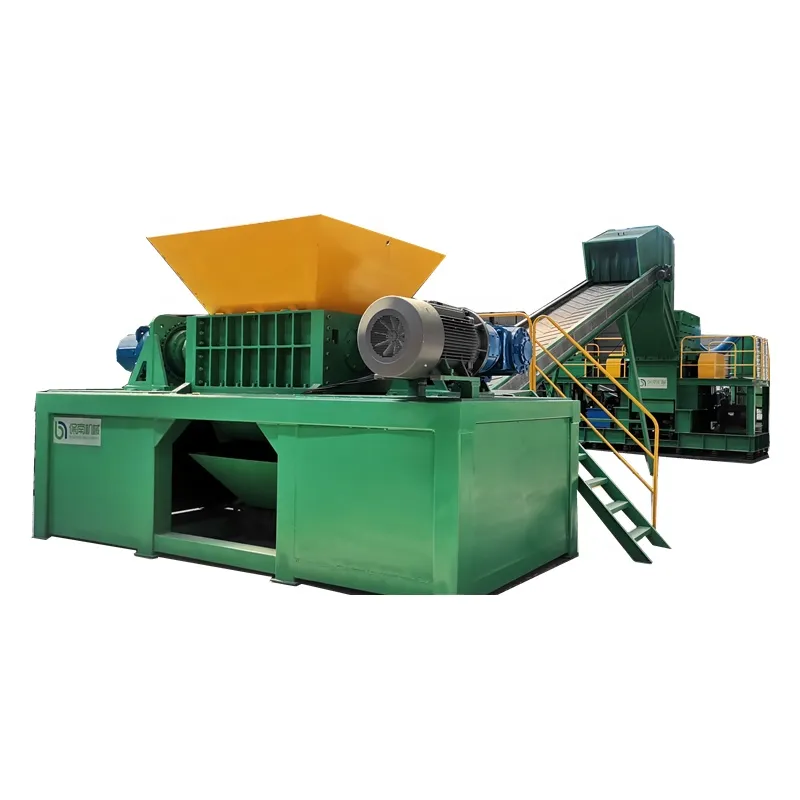

دېكابىر . 17, 2024 16:33 Back to list
Understanding Commercial Metal Shredders An Essential Tool for Recycling and Waste Management
In today's world, where sustainability and environmental stewardship are paramount, the importance of efficient waste management cannot be overstated. One critical component of this process is the commercial metal shredder, a powerful machine designed to process large amounts of metal waste. This article delves into the significance, functionality, and advantages of commercial metal shredders in various industries.
The Importance of Metal Recycling
As global industries continue to expand, the volume of metal waste produced is also on the rise. Metals such as steel, aluminum, copper, and brass are highly recyclable materials that can be reused to manufacture new products. Recycling metal not only conserves natural resources but also reduces greenhouse gas emissions and energy consumption associated with the extraction and processing of virgin materials. However, to make recycling efficient and cost-effective, the metal waste must be properly processed, and this is where commercial metal shredders play a crucial role.
What is a Commercial Metal Shredder?
A commercial metal shredder is a heavy-duty machine engineered to shred large volumes of metal waste into smaller, more manageable pieces. These machines are equipped with robust blades that can handle various types of metals, including scrap vehicles, appliances, and industrial scrap. The primary purpose of a metal shredder is to reduce the size of metal debris, making it easier to transport, recycle, and repurpose for new manufacturing processes.
How Does a Metal Shredder Work?
The operation of a commercial metal shredder involves several key steps
1. Feeding the Material The metal waste is first fed into the shredder through a conveyor belt or hopper. This process ensures a steady flow of material into the shredding chamber.
2. Shredding Once inside, the metal waste is subjected to intense mechanical forces. Powerful rotating blades shred the material into small pieces. Depending on the type of shredder, this process may involve a single-shaft, two-shaft, or even four-shaft system, each offering varying degrees of throughput and particle size.

3. Separation After shredding, the material often needs to be separated. Commercial metal shredders can be equipped with magnetic separators and other sorting technologies to extract ferrous and non-ferrous metals from the shredded waste. This step is vital for guiding the separated metals to the appropriate recycling facilities.
4. Output The shredded and sorted metal pieces are then discharged, ready for transport or further processing.
Advantages of Using Commercial Metal Shredders
1. Efficiency in Processing Metal shredders significantly reduce the size of scrap, increasing transportation efficiency. Smaller pieces can be packed more tightly, ensuring that fewer trips are needed, thus lowering logistical costs.
2. Enhanced Recycling Rates By producing a uniform output size and separating metals effectively, shredders enable higher recycling rates. Recyclers can process and repurpose metals quickly, supporting the circular economy.
3. Safety Improvements Handling large, heavy metal objects can be hazardous. Metal shredders minimize the risks associated with manual handling by mechanically processing materials, making it safer for workers.
4. Cost-Effectiveness While the initial investment in a commercial metal shredder can be significant, the long-term savings in waste disposal, transportation, and material recovery often outweigh these costs. Companies can turn what was once a waste product into a revenue stream by recycling metals.
5. Environmental Benefits Shredding metal waste contributes to reducing landfill usage and promoting the recycling of materials. This not only conserves natural resources but also contributes to lower energy consumption and reduced carbon emissions.
Conclusion
In summary, commercial metal shredders are indispensable tools in modern waste management and recycling operations. They facilitate the efficient processing of metal waste, enhance recycling rates, improve safety, and contribute to environmental sustainability. As industries continue to confront the challenges of waste management, investing in efficient shredding technology will be critical in creating a greener future and maximizing the potential of our world’s resources. Whether in automotive recycling, manufacturing, or general waste management, commercial metal shredders are at the forefront of promoting a sustainable, circular economy.
Latest news
Troubleshooting Common Eddy Separator Problems
NewsJul.04,2025
The Role of Metal Recycling Plants in Circular Economy
NewsJul.04,2025
The Impact of Recycling Line Pickers on Waste Management Costs
NewsJul.04,2025
Safety Features Every Metal Shredder Should Have
NewsJul.04,2025
How Industrial Shredders Improve Waste Management Systems
NewsJul.04,2025
How Cable Granulators Contribute to Sustainable Recycling
NewsJul.04,2025